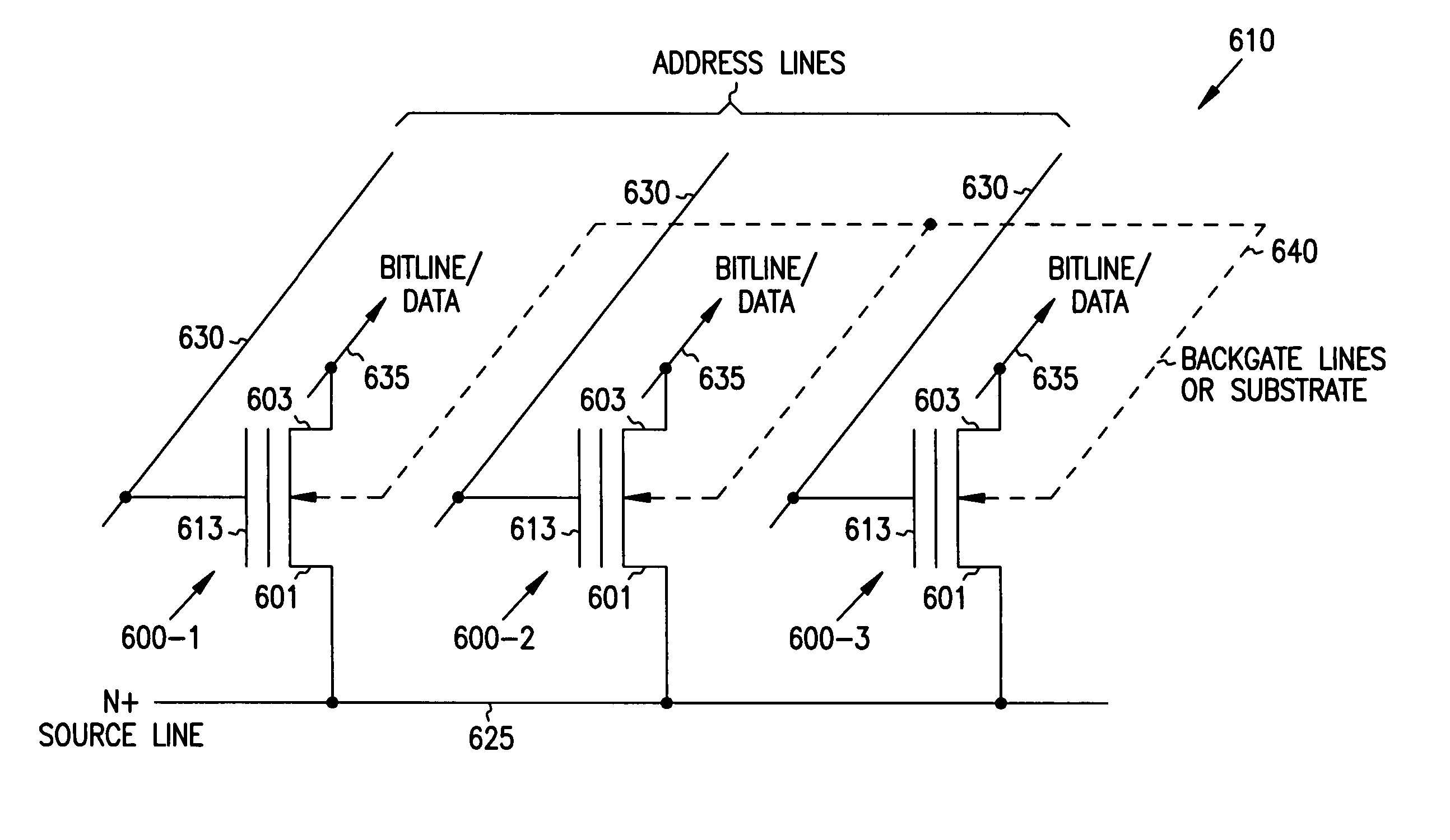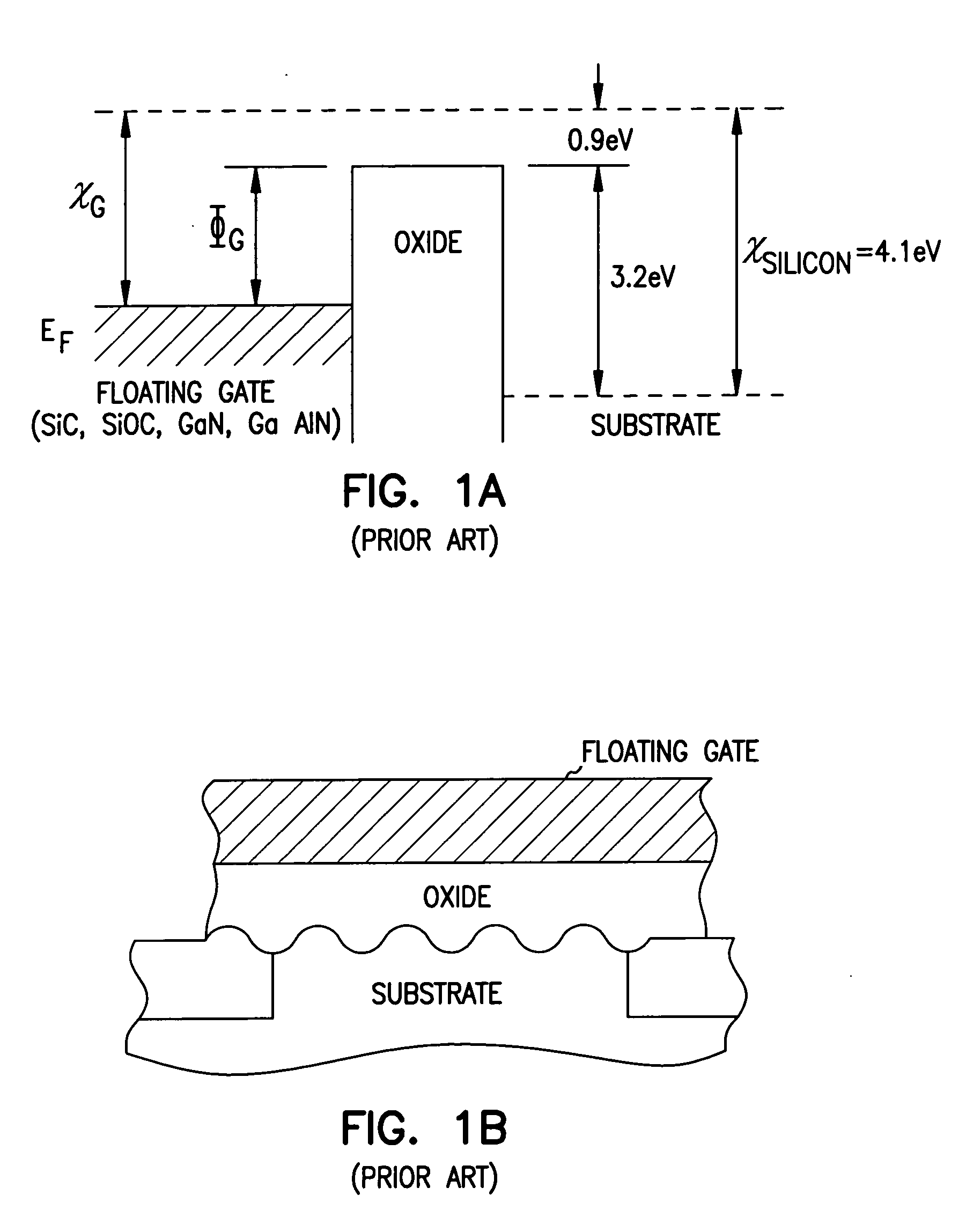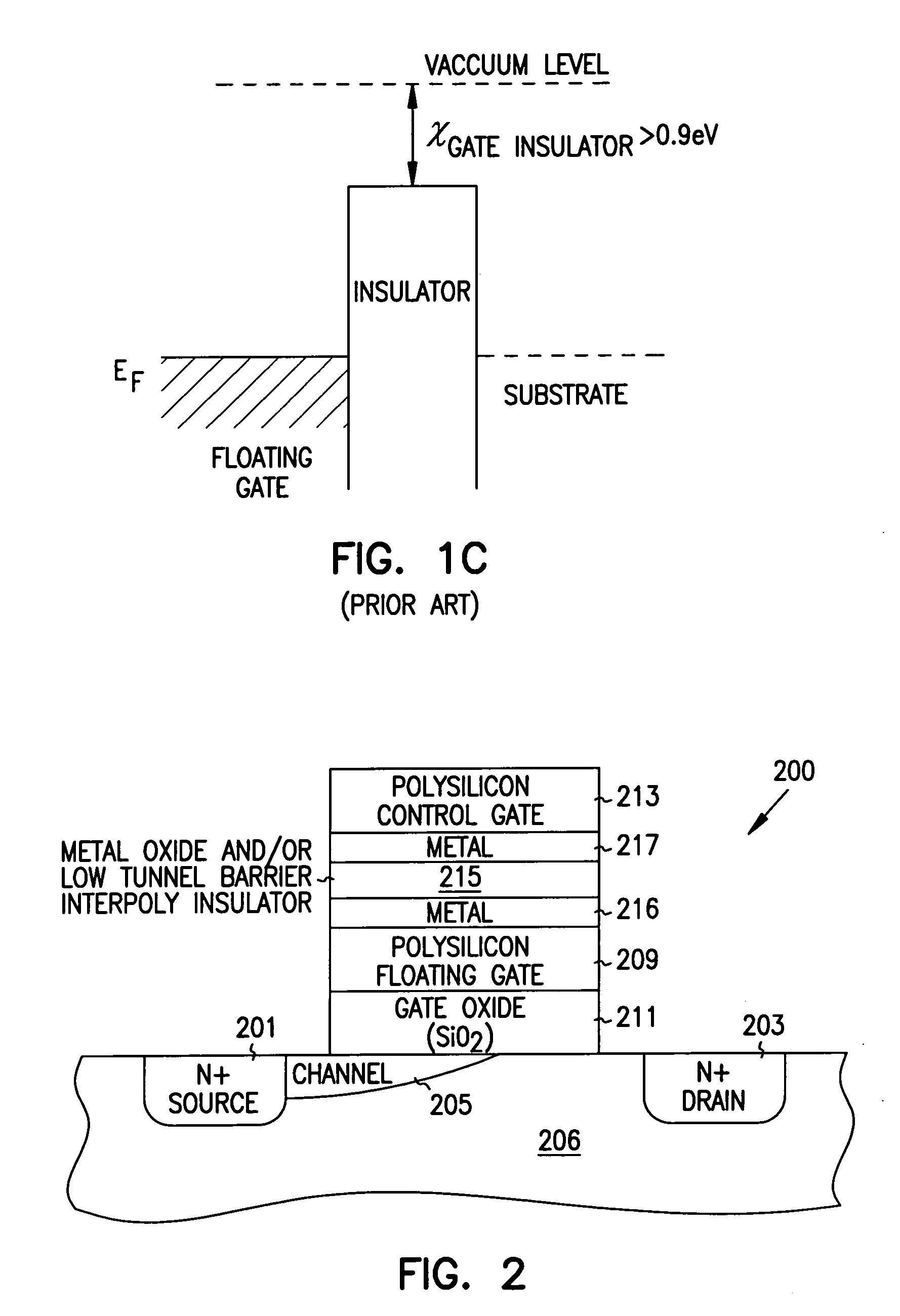Integrated circuit memory device and method
a memory device and integrated circuit technology, applied in the field of integrated circuits, can solve problems such as the need for refresh, and achieve the effect of high current gain and easy programing
- Summary
- Abstract
- Description
- Claims
- Application Information
AI Technical Summary
Benefits of technology
Problems solved by technology
Method used
Image
Examples
example i
Formation of Al2O3 or NiO Tunnel Barriers
[0085] As stated above, the conventional large barrier insulating dielectrics are silicon oxide and silicon nitride. The realities are that silicon oxide is not an optimum choice for memory type devices, because the 3.2 eV tunnel barrier is too high resulting in premature failure of the insulators and limiting the number of operational cycles to be in the order of 105 to 107.
[0086] According to one embodiment of the present invention, a low tunneling barrier interpoly insulator is used instead, such as Al2O3 or NiO having a thickness of less than 20 Angstroms so that the tunneling barrier is less than 1.5 eV. A number of studies have dealt with electron tunneling in Al / Al2O3 / Al structures where the oxide was grown by “low temperature oxidation” in either molecular or plasma oxygen. Before sketching out a processing sequence for these tunnel barriers, note: [0087] (i) Capacitance and tunnel measurements indicate that the Al2O3 thickness incr...
example ii
Formation of Single- and Multi-Layer Transition Metal Oxide Tunnel Barriers
[0096] The band gap energies and barrier heights of some conventional gate insulators as silicon oxide, silicon nitride and aluminum oxide as well as tantalum oxide have been investigated and described in detail. Formation of single and double-layer dielectric layers of oxides of Ta2O5 and similar transition metal oxides can be accomplished by thermal as well as plasma oxidation of films of these metals.
[0097] In some cases the characteristics of the resulting dielectric insulators are not yet well known or well defined. Part of this detail is recounted as follows.
[0098] For example, single layers of Ta2O5, TiO2, ZrO2, Nb2O5 and similar transition metal oxides can be formed by “low temperature oxidation” of numerous Transition Metal (e.g., TM oxides) films in molecular and plasma oxygen and also by rf sputtering in an oxygen plasma. The thermal oxidation kinetics of these metals have been studied for decad...
example iii
Formation of Alternate Metal Compound Tunnel Barriers
[0107] Although no applications may be immediately obvious, it is conceivable that one might want to form a stack of oxide films having quite different properties, for example, a stack comprised of a high dielectric constant (k) oxide / a low k oxide / a high k oxide. “Low temperature oxidation” can be used to form numerous variations of such structures. While most of this disclosure deals with the formation and use of stacks of oxide dielectrics, it is also possible to use “low temperature oxidation” to form other thin film dielectrics such as nitrides, oxynitrides, etc. that could provide additional functions such as being altered by monochromatic light, etc. These will not be discussed further here.
PUM
 Login to View More
Login to View More Abstract
Description
Claims
Application Information
 Login to View More
Login to View More - R&D
- Intellectual Property
- Life Sciences
- Materials
- Tech Scout
- Unparalleled Data Quality
- Higher Quality Content
- 60% Fewer Hallucinations
Browse by: Latest US Patents, China's latest patents, Technical Efficacy Thesaurus, Application Domain, Technology Topic, Popular Technical Reports.
© 2025 PatSnap. All rights reserved.Legal|Privacy policy|Modern Slavery Act Transparency Statement|Sitemap|About US| Contact US: help@patsnap.com



